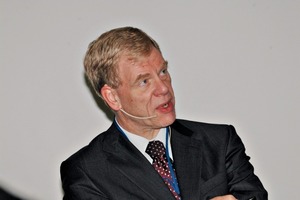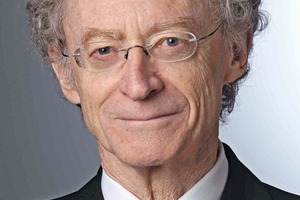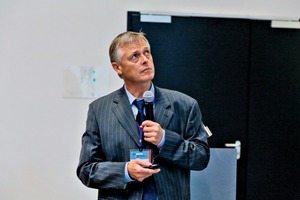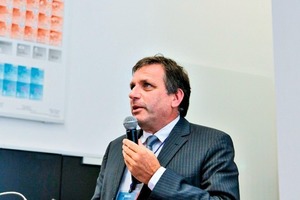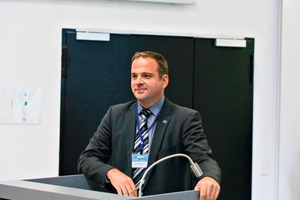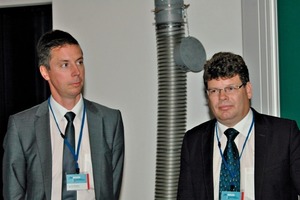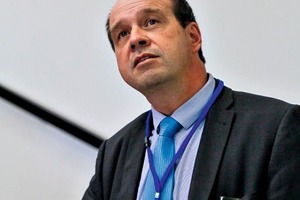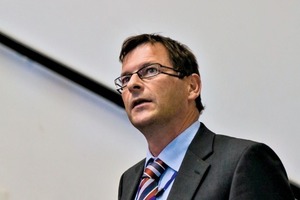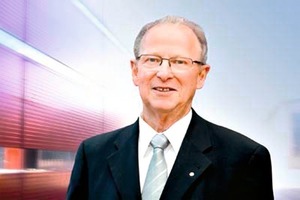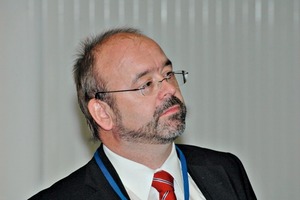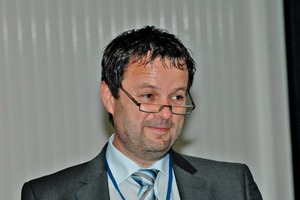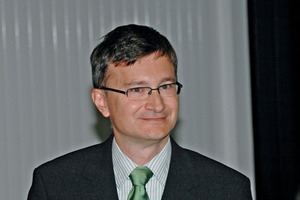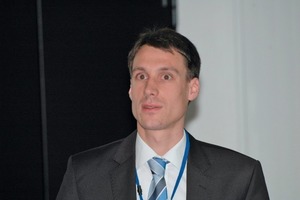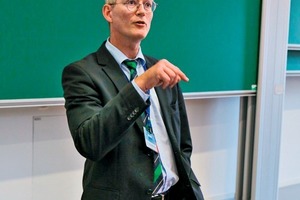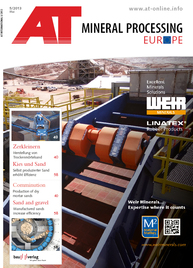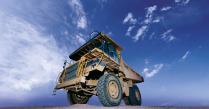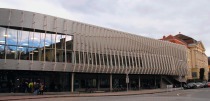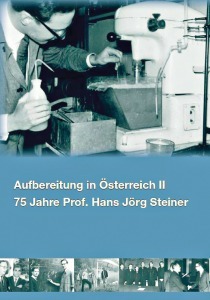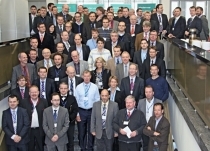12. Leoben Miner’s Day 2012 – EUMICON European Mineral Resource Conference
RAW MATERIALS ARE THE FUTURE – The supply of modern society with mineral raw materials between the conflicting demands of technology, growth and sustainability” was the topic of the Leobener Bergmannstag (Miners’ Day), which already took place for the 12th time in Leoben/Austria from September 19th–21st, 2012. The event, which takes place every 25 years, was internationally promoted this time, under the title EUMICON.
From September 19th–21st 2012, more than 1000 participants from all over the world transformed the Upper Styrian mining and university town Leoben into the centre of the international raw material world. The EUMICON program included approximately 100 high-class national and international speakers – among them numerous leading politicians and representatives from industry and society. The subdivision into seven panels provided interesting insights into a wide range of topics, such as for example Panel B with the title “Mineral Processing and Recycling”. Within the context of this panel, 14 lectures informed the interested participants about current and future challenges and innovations regarding mineral raw material processing, construction materials and ceramic materials as well as waste recycling. A short outline of the topics is given below.
Prof. Georg Unland, currently Saxon Minister of State for Finance and former Vice Chancellor as well as professor at the Institute for Mineral Processing Machines of the TU Bergakademie Freiberg/Germany, introduced new trends and developments in processing equipment. He provided a descriptive review on the developments in the processing of copper ores over the past hundred years, which were characterized and driven by the huge rise in demand for copper, while, at the same time, deposits became more and more depleted and complex. In his opinion, the future trends are in particular the increase in size of mining machines and processing units along with the increase in process intensities. The aim is an increase in overall efficiency, for example, through selective excavation and comminution (e.g. through single particle comminution) or intensified automation of analysis and sorting processes.
Prof. Robin J. Batterham, Kernot Professor of Engineering at the University of Melbourne/Australia does not expect bottlenecks in the supply of mineral raw materials. He uses copper as an example, whose continuously rising demand can be met despite increasingly poorer deposits and declining real revenues. This centuries-long development was and is made possible through continuous technological enhancement. Fields in which he expects such innovations are, inter alia, the significant reduction of comminution expenditure through earlier and thus preliminary removal of coarser tailings, the consideration of material bridges which are ineffectual regarding comminution and basically new concepts in coarse grain flotation.
An overview of the state of the art and the current developments of sensor-based sorting was provided by Prof. Hermann Wotruba of the Department of Processing and Recycling, RWTH Aachen University/Germany. This technology provides important contributions to resource efficiency with applications in preconcentration. It helps to reduce the specific consumption of energy, water and reagents of the ensuing treatment processes.
The constant changes in the world of mineral fillers were described by Dipl.-Ing. Christian Rainer of Omya GmbH/Germany using calcium carbonate as an example. Due to its broad range of applications, calcium is subject to a number of determining factors, which, when changed, impact the entire production chain from extraction to dispatch. A major topic in this regard is the competition between different filler concepts, which drive manufacturers to constant enhancement.
Prof. Helmut Flachberger of the Chair of Mineral Processing at the Montanuniversität Leoben/Austria briefly presented his current industry-oriented dissertations and elaborated on the topic of electrostatic sorting. At the Chair, essential research aspects are the expansion of the classic field of application in mineral processing and processing of secondary raw materials, developments regarding electrostatic sorting of particles below 100 µm and the research efforts for a better understanding of the processes of triboelectrical charging.
For some years, the paint and lacquer industry has increasingly attempted to replace the use of organic solvents by water-based compositions. The related increased requirements on the quality of fillers and the measures required for their production were the key topics of Dipl.-Ing. Alexander Kristen of Imerys Performance Minerals & Talc and Eric Rumeau of Mapaero Aerospace Coatings.
There are a number of technical applications where tungsten, in contrast to many other elements, cannot be replaced. Dr. Wolfgang Köck of Plansee SE/Austria presented a number of measures to ensure the supply of the raw material essential for his company. These include long-term investments in prospecting and mining as well as the development of collection systems and modern recycling technologies.
Dr. Kurt Rabitsch of Treibacher Industrie AG/Austria reported on the critical supply situation of “rare earths” (RE). Although huge reserves are known all over the world, mining and extraction of these metals occur almost exclusively in the Peoples Republic of China. The booming Chinese economy and the rigid export restrictions render them difficult to access for the western world. However, the lecture also showed that, in various applications, it is relatively easy to replace the most sought-after RE-elements by other materials.
Mag. Heinrich Obernhuber of the Maschinenfabrik Liezen MFL & Gießerei Ges.m.b.H./Austria demonstrated the importance of machine and plant engineering with particular regard to process technology for the Austrian economy. He highlighted its surprisingly high percentage of GNP, the productivity of this industry and the structure of the high export rate.
The intended and agreed energy turn-around in Germany by 2050 – with nuclear phase-out and an increasing share of renewable energy – will require the basic restructuring of the electrical power supply. Dr. Reinhold Elsen of RWE Power AG/Germany described the current coverage of the base load by brown coal power stations and a decreasing share of nuclear power. With the scheduled high percentage of renewable energy, the current coal-fired power plants will not be able to work efficiently and will have to be replaced by new types in order to cover peak loads.
Mag. Bernd Buchberger of RHI/Austria dealt with the current challenges in the refractory industry. The changes of the past years resulted from shifts in customer requirements, on the one hand, and rising energy prices and cost-intensive legal tightenings, such as REACH, emission levels and CO2-trading on the other hand.
After a short overview of the most important materials of fine ceramics, Dipl.-Ing. Georg Kogler, Ibiden Frauenthal GmbH/Austria reported on the key raw material sources. In recent years, supply bottlenecks, price rises and changed quality requirements have placed new demands on ceramicists and their raw material suppliers. The lecture ended with a forecast of raw material developments within the next 25 years and the resulting demands on raw material suppliers.
Dipl.-Ing. Tobias Elwert, TU Clausthal/Germany introduced a project on the recycling of lithium ion traction batteries. It was shown that the effective recovery of lithium from the slags of the Umicore UHT-process is possible via flotation, if it is available as aluminate phase in a siliceous matrix. Otherwise hydrometallurgical treatment is the better alternative.
In the last lecture, Prof. Roland Pom-berger of the Chair of Waste Treatment Technologies of the Montanuniversität Leoben/Austria described the current developments in solid recovered fuels both in technical, legal and economic terms. Following different quality criteria for substitute fuels, the lecture ended with considerations on the inter-relations between primary and secondary raw material markets.
The Leobener Bergmannstag – EUMICON 2012 was intended to cause a broad-scale and media-oriented raising of awareness of the importance of mineral raw materials. However, an equally important issue is the implementation of the information presented during the congress in order to ensure the sustainable supply of mineral raw materials for the future of Austria and Europe.

